Year in Review 2017: setbacks, surprises and media wars within the Pakistani film industry
From major box-office disappointments to startling incidents, this year was hell of a ride
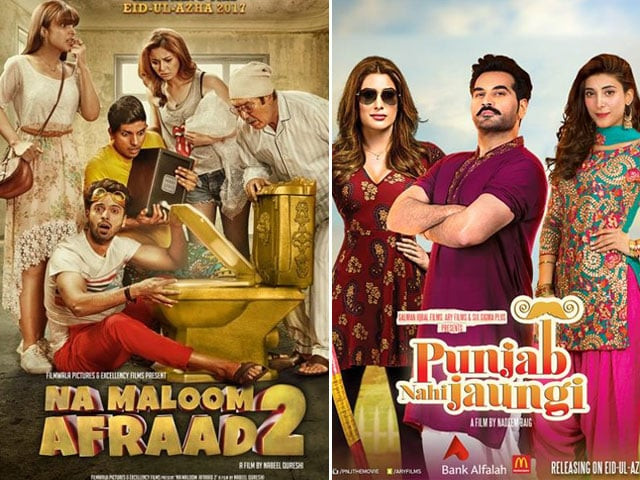
PHOTO: FILE
Cinema is evolving every day. Even if we look at Hollywood, it is in the process of assessing, reassessing and shaking up elements to attract a wider audience. Superhero films took over the industry in the last several years. Now, even the most hyped ones fail to make a mark. Bollywood, too, has slowly changed its identity and have switched to more content-focused, less-grandeur type films.
In Pakistani film industry, another year has gone by in the name of ‘revival’. Each year, we see new trends, stars rise or fade into obscurity and huge box office clashes that at times result in great business.

2017, more than anything, was a year of transition for the local cinema. The most anticipated big budget films tanked, veterans disappointed, new stars rose and war between critics, bloggers and film-makers ensued (and it’s still going on).
With each film, we discovered what works and what doesn’t, what the audience wants and what film-makers are delivering, whether this is the right direction to go in or must the film-makers create not only for the box office success but also because their films matter in the bigger picture – something more personal, more ambitious, less money-motivated. No matter what, it can’t be denied that 2017 was an important year in the evolution of Pakistani film industry. In this piece, we discuss the hottest, the most controversial, surprises, disappointments and major happenings of the year.
The mighty fall
Before the year 2017 even began, there was a ton of anticipation for a few major films that were expected to clean sweep at the box office. The duo of director Shoaib Mansoor and Mahira Khan were set to reunite in the revenge thriller Verna. Veteran Syed Noor was set to return with a new film Chain Aye Na. Shaan Shahid and Humayun Saeed were set to share screen in what was billed as one of the most expensive films in Pakistani history, Yalghaar. Shaan, in his solo venture, rebooted Mahesh Bhatt’s 1982 Arth.
 PHOTO: YALGHAAR/FACEBOOK
PHOTO: YALGHAAR/FACEBOOKWhat, you ask, is the commonality among these films? They all tanked at the box office and were panned by critics alike. Exhibitors and producers took a big hit. In fact, first half of 2017 passed without one single success. It showed that relying on big names was not enough to carry the industry.
During the five-month self-imposed ban on Bollywood in late 2016, exhibitors had already suffered heavy losses and in February, they welcomed it back again to survive. Nevertheless, local films like the first of 2017, Rafay Rashdi’s Thora Jee Le, Osman Khalid Butt’s Balu Mahi, Sahir Lodhi’s Raasta, and Umer Adil’s Chalay Thay Saath didn’t do anything to attract the audience to cinemas.
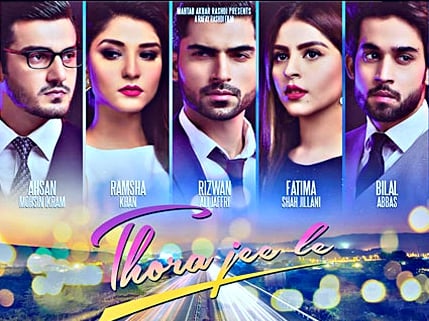 PHOTO: FILE
PHOTO: FILEAnd then came the veterans to save the industry and ended up harming it more than anything. Chain Aye Na was considered a disaster even before it released, with its trailer becoming a laughing stock for months to come. Yalghaar, despite big names and budget, delivered such a mediocre product that it couldn’t even recover its budget. Verna highlighted an important issue in such a flawed way that not even Mahira’s star power helped it. And by the time we arrived at Arth in December, people did not care anymore. It was time for change.
New stars emerge
Despite the numerous box office failures, 2017 saw several new stars debut. While some of them won’t likely be seen again at least anytime soon, some managed to adapt and improvise. Haroon Shahid, who debuted alongside Mahira in Verna, failed to make a mark. But some, like Ramsha Khan and Bilal Abbas from Thora Jee Le turned to TV serials and continued working. Osman Khalid Butt made his solo debut in the lead role with Balu Mahi, and despite its commercial failure, proved he can hold his own as a film star.
 PHOTO: INSTAGRAM/HAROON SHAHID
PHOTO: INSTAGRAM/HAROON SHAHIDIn the 1960s, Hollywood was going through a similar period. The studio system (where the big studios had more authority over a film than the directors and team) was on the verge of collapse, and the immense popularity of television was turning people away from cinemas. The young generation was frustrated and rebellious. Then films like Bonnie and Clyde and Easy Rider came and changed everything, thus beginning the American New Wave movement. The young film-makers slowly took over and shook things up.
In Pakistan, we have just finally begun to realise that it’s time to invest in new stars, new writers and directors. The last film of the year, Chupan Chupai proved that given an opportunity, the so-called ‘rookies’ can do a better job than most, as they are more accustomed to what people want.
Saving graces
While major films such as Rangreza, Yalghaar, Arth and Verna flopped, Punjab Nahi Jaungi (PNJ) and Na Maloom Afraad 2 (NMA2) have been the only two saving graces of the year. The two films attracted the widest audience and gained record profits, considering no one else came even close. Directors Nadeem Beyg and Nabeel Qureshi maintained their track record with more hits. And PNJ’s success simply proved that Saeed still draws, that the audience recognises an entertaining and well-made film, and that mediocre films will not help the industry, whereas NMA2 proved that Fahad Mustafa is a true star of the masses.
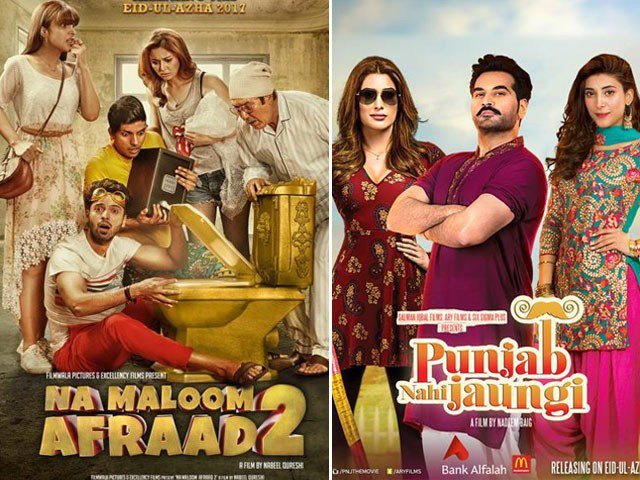 PHOTO: FILE
PHOTO: FILECinema trends changed
If anything, 2017 was the year where feminist movement rose. It had an impact on everything, from daily lives to advertisements to cinema. We saw women getting relatively more meaningful characters, such as in Verna where Mahira refuses to stand down in the face of powerful oppressors. In the biggest hit of the year, Punjab Nahi Jaungi, Mehwish Hayat’s character Amal made sure Humayun Saeed’s character Fawad Khagga paid for his mistake of slapping her. On the other hand, films such as Chain Aye Na were criticised for encouraging violence against women.
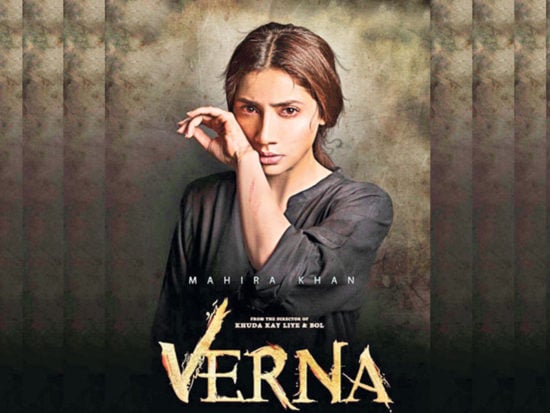 PHOTO: FILE
PHOTO: FILEOne dominant trait in local cinema has been the film-makers’ focus on social issues. They try to hard to convey the message that it becomes preachy and loses its impact. This year was no different. Saawan, Pakistan’s submission for Oscar nominations took a great idea (an underdog story of a polio-affected child) and buried it six feet deep. Mehrunisa V Lub U spoke about cleaning up our environment in a slightly more effective manner.
It would be interesting to see which direction film-makers turn to in 2018.
Shocking events
If all the successes and failures aren’t interesting enough, the unthinkable happened this year too. Never has a film premiered and then been pulled from release. Nadir Shah’s superhero film Project Ghazi, starring Saeed, Syra Shahroz and Sheheryar Munawar, held its premiere in July. An incomplete and inexplicable film caused Saeed to walk out and force the producers to call off its release indefinitely. While the new release date hasn’t officially been announced, its delay surprised and disappointed many. Syra’s both film projects this year faced trouble, with Chalay Thay Saath failing at the box office and Project Ghazi not even releasing.
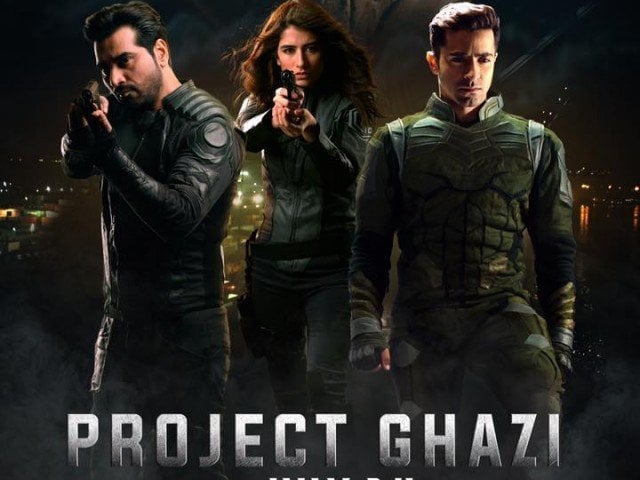 PHOTO: FILE
PHOTO: FILEFurther, censor board made its presence known, although not in a positive manner. After five weeks of release and collecting over Rs100 million, Na Maloom Afraad 2 was banned in Punjab. When the reason cited was the film’s inappropriate and ‘obscene’ content, the situation escalated, and the film’s producers called it a political move. An official from Central Board of Film Censors had stated it was the government’s call. However, the entire controversy only lasted 24 hours and the film was back in theatres the next day.
Verna also found itself in hot waters when the censor board objected over its ‘indecent content’. It rattled women’s rights groups and Mahira’s fans alike. The battle with the censor boards caused its Lahore premiere to cancel and even miss out on some shows on the day of its release, until it was finally cleared (the very same day). Perhaps, it’s time to hold the censor board accountable for their irrational decisions as well.
Media wars
The war between film critics and film-makers goes decades back. It finally erupted in Pakistani film industry in 2017 as well. It was all fun and games until Raasta was mocked by critics and audience alike. With the TV host’s film debut receiving extraordinary flak, he retorted and turned it into a publicity stunt to save his ‘raasta’. Lodhi’s lines such as “Who gave you the right? Are you a demi-god?” from his viral rant didn’t do much to save the film, except provide free, entertaining distraction from his torturous film.
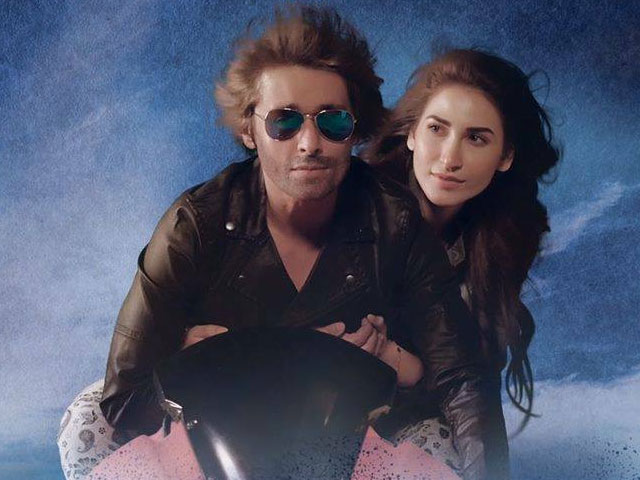 PHOTO: PUBLICITY
PHOTO: PUBLICITYDirector Yasir Nawaz also hijacked Punjab Nahi Jaungi’s trailer launch to voice his disgust toward bloggers who apparently only spread negativity. But the bigger case was Syed Noor’s excuse for Chain Aye Na’s failure. He connected the bloggers’ alleged dislike for the local film industry to an Indian agenda. “I don’t know why they do this. I think it’s an Indian agenda to hurt the Pakistani film industry. Our cinema is just once again growing, and they don’t want to see this happen,” he said in a press conference last summer.
History repeated itself and another veteran also lashed out at critics and public alike in December. Shaan’s Arth – The Destination left almost everyone disappointed and it upset the star so much that he became overly defensive on social media. From going after comedian Ali Gul Pir, calling out critics for hiding behind words instead of making films themselves to labelling Arth’s failure as a Karachi vs Lahore rivalry, Shaan did everything.
 PHOTO: FILE
PHOTO: FILEAs veterans failed, new faces emerged. Although there were more failures than successes in 2017, the issues the industry faced run deeper than that. The relationship between critics and artists came under microscope, censor board came under fire multiple times, audience somewhat grew to appreciate quality over name value. While this is just a realisation of several issues underlining our nascent industry, 2018 should take us in a better direction where more problems come forth to be solved, veterans become more supporting of the younger lot, producers can finally trust new film-makers and not put them on a tight leash.
Have something to add to the story? Share it in the comments below.

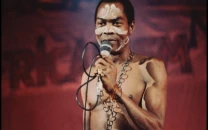



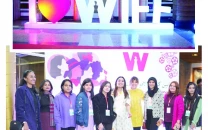













COMMENTS
Comments are moderated and generally will be posted if they are on-topic and not abusive.
For more information, please see our Comments FAQ